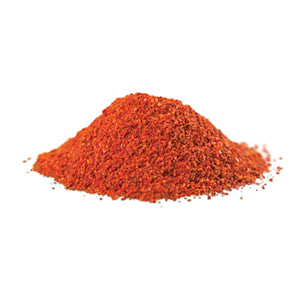
Beta Carotene
BIO
Found In
Leafy vegetables, yellow and red vegetables, fruits, animal liver and fish oils
Form
Beta Carotene
Source
Blakeslea trispora
Vitamin A is a fat soluble vitamin, which is present in many foods. Vitamin A is very important for normal vision, immune health, and reproductive health. Two forms of vitamin A can be sourced from the diet- provitamin A and preformed vitamin A. Preformed vitamin A is found in animal sources. Provitamin A is found in leafy vegetables, yellow and red vegetables, fruits, and some vegetable oils. Beta-carotene is the primary and most active provitamin A in humans. Other types of provitamin A are alpha-carotene and beta-cryptoxanthin.
KEY BENEFITS
- Supports eye health
- Helps build a strong immune system
- Helps reduce oxidative damage
- Helps in growth and development
Description
Vitamin A is a fat soluble vitamin. Retinol, retinal, and retinoic acid (RA) are the different forms of vitamin A (1). It plays a role in maintaining vision, promoting growth and development of epithelium and mucus integrity. Vitamin A helps to enhance immune health with the help of its anti-inflammatory properties. It is reported to play protective role against measles & respiratory tract infection (1).
Carotenoids which contains at least 1 unsubstituted β-ionone ring can potentially yield vitamin A due to which it is called as provitamin A carotenoids. Human diet contains more or less 50 carotenoids out of which only 5 or 6 are detectable in human plasma & they are α- and β-carotene, β-cryptoxanthin, lycopene, lutein, zeaxanthin. Because of its structure and cleavage efficacy only α- and β-carotene and β-cryptoxanthin have provitamin A activity. Among all of these carotenoids, all-trans-β-carotene is the most suitable precursor for vitamin A (3).
Toxicity issues are associate with an excess intake of Vitamin A. But the toxicity of Vitamin A does not occur with the high doses of β-carotene. It is because of the cleavage of β-carotene which is regulated through feedback mechanisms, only desired and necessary amount of Beta carotene gets metabolized to retinol. Therefore it is recommended to consume dietary requirement of Vitamin A in the form of Beta carotene (3).
Vitamin A and epithelial tissue function
- Vitamin A helps in the morphological formation of epithelial tissue which includes epithelial keratinization, stratification, differentiation, and functional maturation of epithelial cells. It is an integral part of the mucus layer present in the respiratory tract and the intestine. It improves the antigen non-specific immunity as it is involved in mucin secretion (1).
Immune health
- Vitamin A is involved in the development of the immune system and plays regulatory roles in cellular immune responses and humoral immune processes (2).
- Helps maintain structural and functional integrity of mucosal cells in innate barriers (e.g., skin, respiratory tract, etc.) (2)
- It is important for normal functioning of innate immune cells (e.g., NK cells, macrophages, neutrophils) (2).
- Necessary for proper functioning of T and B lymphocytes and thus for generation of antibody responses to antigen (2).
- Involved in development and differentiation of Th1 and Th2 cells and supports Th2 anti-inflammatory response (2).
- Another function of vitamin A, suggests that it provides protection against infections (2).
Eye health
- In the eye vitamin A has a specific, highly complex function in dark vision (4).
- Vitamin A is critical for vision as an essential component of rhodopsin, a protein that absorbs light in the retinal receptors, and because it supports the normal differentiation and functioning of the conjunctival membranes and cornea (4).
- Vitamin A deficiency leads to night blindness (4).
Beta carotene and skin health
- several studies on Beta carotene have reported a protective effects of beta carotene against acute and chronic skin photodamage. It protects the skin form UV-induced erythema (3).
The Unived difference
Unived’s uses Natural beta-carotene from Blakeslea trispora. It is a superior source of vitamin A as it contains the most stable and bioavailable form of beta-carotene. When compared to Natural β-carotene from D. salina, Natural β-carotene from B. trispora, has higher pro-vitamin A activity due to a higher content of trans-isomers. It is clean-labeled with much lower chances of contamination and is not affected by external environmental factors since the processing is carried out in an enclosed reactor. It Is more suitable for a variety of delivery systems and provides uniformity & consistency since it is obtained from pure β-carotene crystals and not oleoresin
Evidence-Based or Bust
We use nutrients backed by a significant body of research that is growing each day.
- Role of Vitamin A in the Immune System
Huang, Z., Liu, Y., Qi, G., Brand, D., & Zheng, S. G. (2018). Role of Vitamin A in the Immune System. Journal of clinical medicine, 7(9), 258. - Immune Function and Micronutrient Requirements Change over the Life Course
Maggini, S., Pierre, A., & Calder, P. C. (2018). Immune Function and Micronutrient Requirements Change over the Life Course. Nutrients, 10(10), 1531. - β-Carotene Is an Important Vitamin A Source for Humans
Grune, T., Lietz, G., Palou, A., Ross, A. C., Stahl, W., Tang, G., ... & Biesalski, H. K. (2010). β-Carotene is an important vitamin A source for humans. The Journal of nutrition, 140(12), 2268S-2285S. - Retina, Retinol, Retinal and the Natural History of Vitamin A as a Light Sensor
Zhong, M., Kawaguchi, R., Kassai, M., & Sun, H. (2012). Retina, retinol, retinal and the natural history of vitamin A as a light sensor. Nutrients, 4(12), 2069–2096.
17,586
Studies on Beta Carotene and Counting
Vitamin A is extensively studied for eye health, growth & development, cell division, UV protection, reproductive & immune health.
